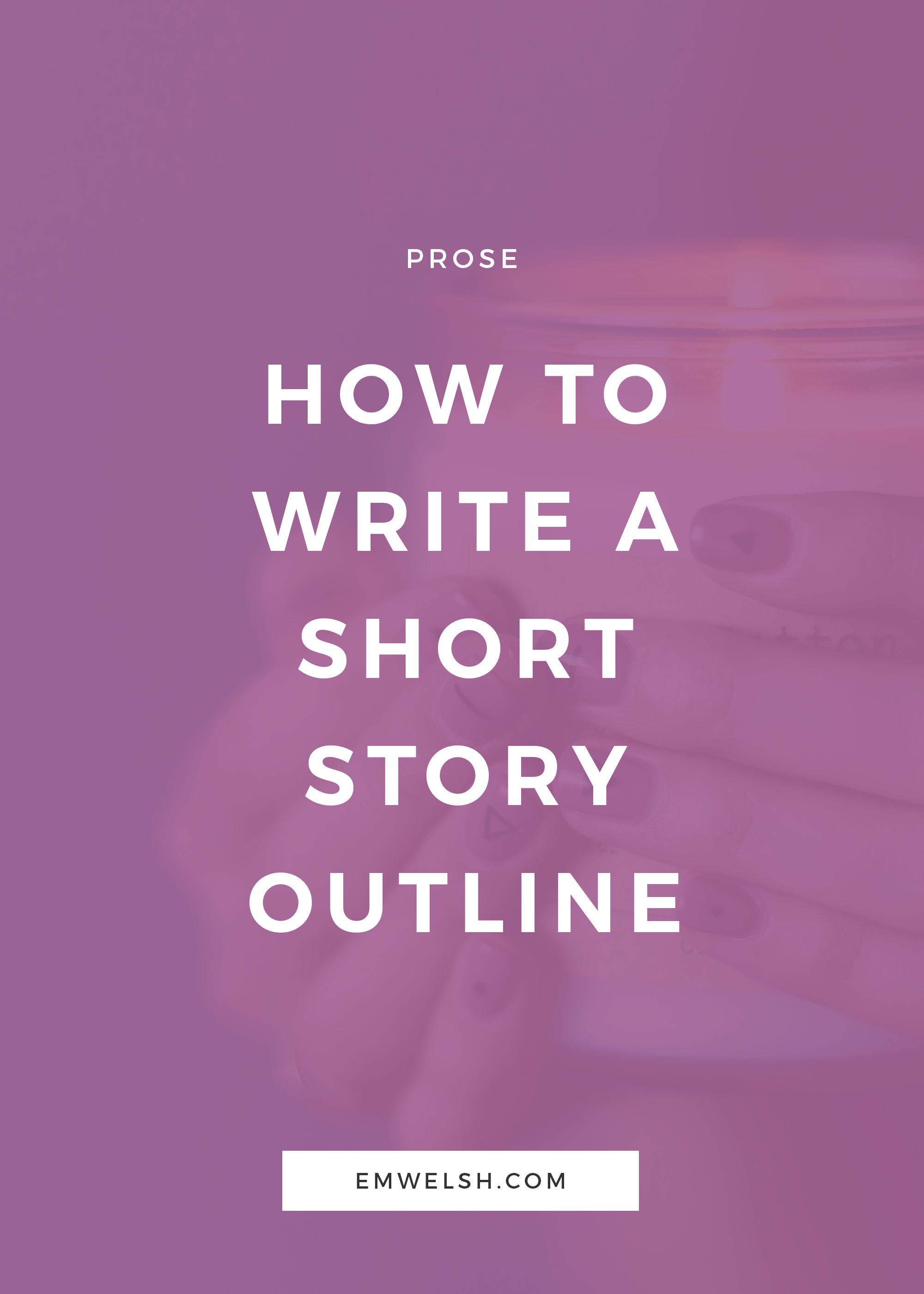How to Do NaNoWriMo Even When You Have a Full-Time Job
/It’s that time of year again when writers around the world prepare for NaNoWriMo – otherwise known as “National Novel Writing Month.” Taking place in November, NaNoWriMo challenges writers of all experiences to write an entire novel (or novella) in one month’s time, averaging about 1,667 words per day.
For many people, this will be their first time ever attempting to write a novel, while others are gearing up to write their tenth or twelfth.
Some people will spend the entire month of October preparing and outlining for their novel writing journey the following month, whereas others (like me!) will do no planning at all. They’ll approach the blank page with nothing in mind and just see where their idea (if they even have one) takes them.
However, no matter how people approach NaNoWriMo, there is always that group of people who wish they could do it, but are convinced that they just don’t have the time to write a novel because they have a full-time job.
And I get it. Writing a novel seems like an ENORMOUS task and with your already way-too-busy-to-even-eat-or-sleep schedule, taking the time to write a novel seems impossible, at least right now. You spend a long day working 8+ hours and by the time you’re home, you’re exhausted.
But, here’s the thing – if it’s your dream, why wait any longer?
While I have never participated in NaNoWriMo officially, long before I wrote a novel and two scripts in just three months, I picked a random month in the spring and banged out a novel while I was taking eighteen hours worth of coursework in school.
Now, this wasn’t a 9-5 job, but it taught me something that NaNoWriMo is really all about – proving to yourself that there IS always time to write your novel. Even when you’re crazy busy!
And you might be thinking, “You were in college! You still had a lot of free time!” Even with homework, it doesn’t always amount to the same lack of time you experience when you have a full-time gig.
However, I’m here to tell you that now that I have a full-time position and am still writing a 70,000-word novel, it is totally, 100% doable, and I’m going to show you how so you can finally write your novel and participate in NaNoWriMo.
Doing NaNoWriMo When You Work Full Time
The trick to writing any novel – not just during NaNoWriMo – when you have a full time position is simply making a commitment.
Yes, it will be hard those first few days to wake up an hour earlier or skip out on dinner plans with friends for the sake of your writing. But let me just tell you from firsthand experience that it is SO worth it in the end.
But beyond commitment, there are a few other tips to keep in mind that will really help you stay on track and make you feel like you have a more concrete action plan. Read on to find out what those are:
Step 1. Assess where you have free time during the week and weekends
Before you start writing, you need to assess when you actually can write during the week and on the weekends in a way that won’t totally kill you or discourage you.
With a 9-5 job, you may think your schedule is really limited. However, with some creativity and flexibility (and of course, sacrifice) you can find PLENTY of time to write your 1,667 words.
You can choose to write your novel in the morning, before work, by waking up thirty minutes to an hour earlier than usual during the weekdays. But be realistic here!
If it already kills you to wake up when you do, do not plan to write in the mornings! However, if you aren’t a morning person but are certain mornings are the only times you can write, try waking up 15 minutes early to write a short amount of words, like 300, so that when you get home later you feel you have less to write.
If waking up earlier isn’t an option (me!) then you can also write during your lunch break for a small period of time, knocking out 500-1,667 words depending on how the ideas are flowing that day. Or, you can even write after work, when you have an entire evening ahead of you.
If you’re certain that weekdays are limited, you can also shorten your word count to 1,000 words a day Monday through Friday, then write the remaining 6,669 words on the weekend when you have two full days to write.
Whatever you choose, be honest with not only when you’re most productive, but also when you can actually find the time. For help with planning out your first week, I suggest looking at my guide to having the most productive week of your writing life.
Step 2. Create time slots for when you’ll write for NaNoWriMo
Once you’ve assessed when you can actually write, you’ll want to set up a time slot in your calendar like an appointment for every day you plan to write.
This might seem like a lot, and you really only need to do it until you feel you’ve established a routine or habit, but it does make it SUPER easy to hold yourself accountable to your goal. It also makes it easy for you to visualize your day including your work schedule!
Again, be sure to check out my post on Asana to help you pick the best time to write and make sure you stay accountable!
Step 3. Create a writer’s ritual
A writer’s ritual is absolutely essential to staying on track during NaNoWriMo, especially when you have a full-time job.
This is because, with a writer’s ritual, you create a “trigger” that gets you into the writing zone whenever you need to be.
The first week or so when you are writing and are exhausted after a long day of work, you’ll really struggle to get into that writing mindset. By creating a routine or ritual, you quickly can feel inspired and ready to write by utilizing sensory cues!
It might seem like a minor thing, but having a step-by-step way to prepare yourself mentally for your writing day will make things MUCH easier early on, especially if you come home to even more distractions.
For a guide to creating your writer’s ritual, check out my post on the topic!
Step 4. Give yourself extra time the first few days
The first few days of NaNoWriMo are undoubtedly the hardest.
With a full-time job, you likely are worried about time and how little of it you already have. The last thing you want is to be stuck at a computer for five hours on the first day after spending eight hours on a computer at work. That’ll totally discourage you!
And while you more than likely will only take forty minutes to an hour to write your daily 1,667 words, I highly suggest padding your writing time appointments (Yes! Make them calendar appointments! See above.) with an extra thirty minutes or so.
That way, should you accidentally take longer – which is very possible the first week before you get into the flow of regular writing – you won’t be freaking out over the “lost time” or worry about other things you may need to take care of.
For more help with this, check out my tips on how to make an appointment in your calendar in a realistic way. Doing this will help you make sure you have plenty of time and don’t feel rushed or disappoint yourself within the first week by not meeting your word count.
Step 5. Prepare for reality
One thing that really throws people off during NaNoWriMo is reality.
Now, you may think I am kidding, but unless you have extreme self-discipline and have clearly set boundaries with everyone in your life and have made it clear when your writing time is, life will happen and you may get behind one day.
First things first – that’s totally normal and okay.
Instead of panicking or freaking out, know that you may miss a day and have an action plan ahead of time.
This action plan could be a padded writing goal, such as writing 1,800 words a day to account for the chance that you may occasionally miss a day, or it could be giving yourself back up times in your calendar to write more on a different day.
It’s up to you, just have an action plan for reality ahead of time so you don’t freak out and give up for missing a day or two of the challenge.
It’s not the end of the world if you have to pick up a few days in December to write those last 3,000 words. Trust me. Don’t let one day that you missed get in the way of you finishing that first draft!
After all, what’s worse to you – taking a few extra days to finish that first draft, or dropping it completely because you got discouraged from not writing EVERY day?
Step 6. Notify friends and family that you’re writing a novel
Before NaNoWriMo begins, I highly recommend telling family and friends about your commitment to writing a novel in a month.
Now, this isn’t to brag or to make sure you have “accountability.” Instead, it’s so that when you say “no” to plans more often than usual or have to close the door and spend some time away from your family, everyone knows why and supports you!
Sure, there’s the added benefit of accountability and making a commitment, but you really need to tell people so you’ll feel less guilty honoring your goal!
Step 7. Give yourself Thanksgiving off
Finally, if there’s one thing you need to do when participating in NaNoWriMo as someone with a full-time job, it’s to give yourself Thanksgiving day off. And forgive yourself for it!
It’s a small thing, but take a day to spend time with your loved ones and relax. You work over forty hours a week and are juggling writing a novel at the same time. So, do yourself a solid and give yourself a holiday.
I promise if you account for it, it won’t put a kink in your plans!
And remember, even if you don’t finish your novel during NaNoWriMo, there is nothing stopping you from finishing your work at a later date! For more insights and wisdom to writing while you have a full-time life, be sure to check out this article over at Well-Storied.com.
It has some great tips for juggling your writing dreams while you work a day job and the more you can find ways to balance that with your storytelling goals, the better!














